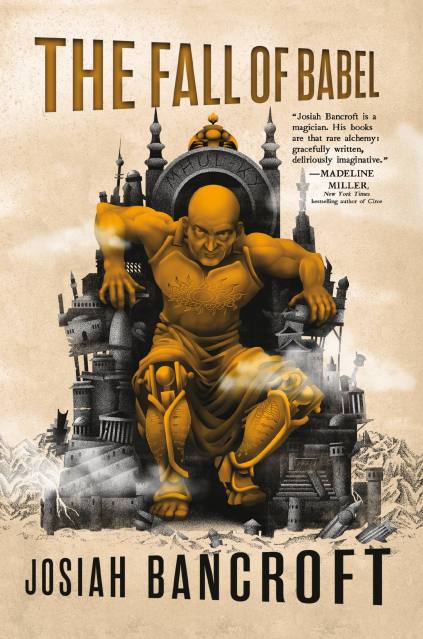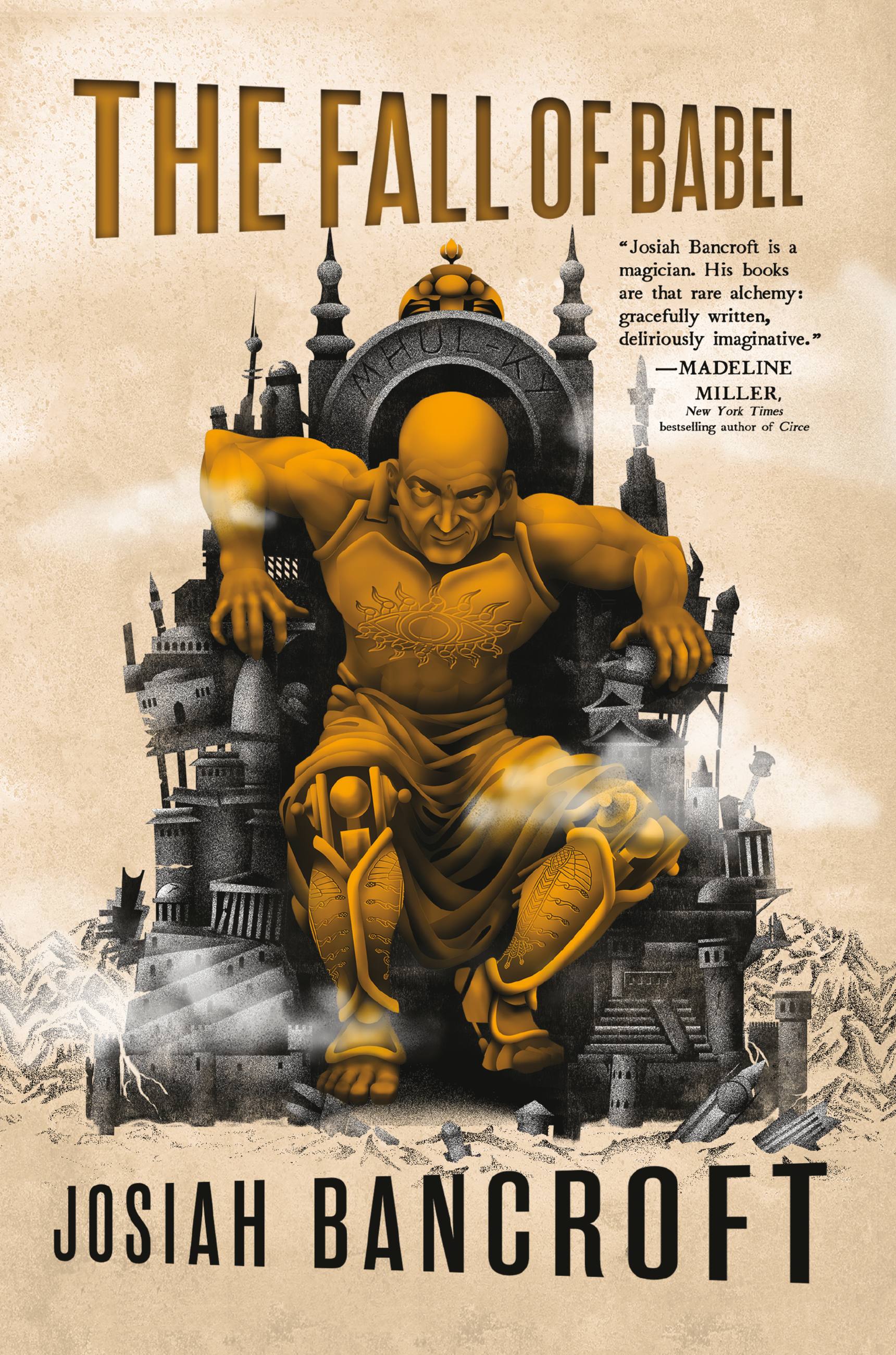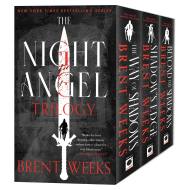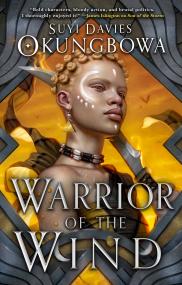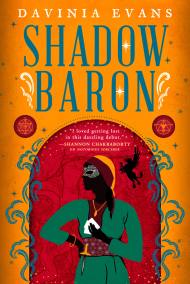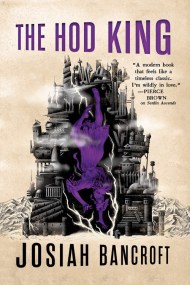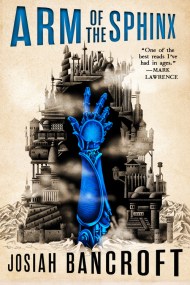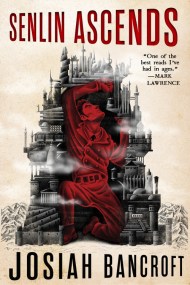Promotion
Use code MOM24 for 20% off site wide + free shipping over $45
The Fall of Babel
Contributors
Formats and Prices
Price
$21.99Price
$28.99 CADFormat
Format:
- Trade Paperback $21.99 $28.99 CAD
- ebook $9.99 $12.99 CAD
- Audiobook Download (Unabridged) $44.99
This item is a preorder. Your payment method will be charged immediately, and the product is expected to ship on or around November 9, 2021. This date is subject to change due to shipping delays beyond our control.
Also available from:
The incredible final book in the phenomenon fantasy series described as “future classics" follows one man's dangerous journey through a labyrinthine world and the mysteries he uncovers along the way. (Los Angeles Times).
"Josiah Bancroft is a magician. His books are that rare alchemy: gracefully written, deliriously imaginative, action packed, warm, witty, and thought provoking." —Madeline Miller, New York Times bestselling author of Circe
As Marat's siege engine bores through the Tower, erupting inside ringdoms and leaving chaos in its wake, Senlin can do nothing but observe the mayhem from inside the belly of the beast. Caught in a charade, Senlin desperately tries to sabotage the rampaging Hod King, even as Marat's objective grows increasingly clear. The leader of the zealots is bound for the Sphinx's lair and the unimaginable power it contains.
In the city under glass at the Tower's summit, Adam discovers a utopia where everyone inexplicably knows the details of his past. As Adam unravels the mystery of his fame, he soon discovers the crowning ringdom conceals a much darker secret.
Aboard the State of Art, Edith and her crew adjust to the reality that Voleta has awoken from death changed. She seems to share more in common with the Red Hand now than her former self. While Edith wars for the soul of the young woman, a greater crisis looms: They will have to face Marat on unequal footing and with Senlin caught in the crossfire.
And when the Bridge of Babel is finally opened, and the Brick Layer's true ambition revealed, neither they nor the Tower will ever be the same again.
Also by Josiah Bancroft:
The Books of Babel
Senlin Ascends
Arm of the Sphinx
The Hod King
The Fall of Babel
"Josiah Bancroft is a magician. His books are that rare alchemy: gracefully written, deliriously imaginative, action packed, warm, witty, and thought provoking." —Madeline Miller, New York Times bestselling author of Circe
As Marat's siege engine bores through the Tower, erupting inside ringdoms and leaving chaos in its wake, Senlin can do nothing but observe the mayhem from inside the belly of the beast. Caught in a charade, Senlin desperately tries to sabotage the rampaging Hod King, even as Marat's objective grows increasingly clear. The leader of the zealots is bound for the Sphinx's lair and the unimaginable power it contains.
In the city under glass at the Tower's summit, Adam discovers a utopia where everyone inexplicably knows the details of his past. As Adam unravels the mystery of his fame, he soon discovers the crowning ringdom conceals a much darker secret.
Aboard the State of Art, Edith and her crew adjust to the reality that Voleta has awoken from death changed. She seems to share more in common with the Red Hand now than her former self. While Edith wars for the soul of the young woman, a greater crisis looms: They will have to face Marat on unequal footing and with Senlin caught in the crossfire.
And when the Bridge of Babel is finally opened, and the Brick Layer's true ambition revealed, neither they nor the Tower will ever be the same again.
Also by Josiah Bancroft:
The Books of Babel
Senlin Ascends
Arm of the Sphinx
The Hod King
The Fall of Babel
Genre:
-
"A delightfully open-ended and satisfying conclusion."Booklist
-
“Josiah Bancroft brilliantly sticks the landing of his Books of Babel series. This fourth and conclusive volume … picks up each of the old threads, knots them off like a master sailor, and braids the whole into a beautiful tapestry.”Locus Magazine
-
"It's rare to find a modern book that feels like a timeless classic. I'm wildly in love with this book."Pierce Brown, author of Red Rising on Senlin Ascends
-
"The Hod King is a compelling and original novel; the "Books of Babel" are something you hope to see perhaps once a decade - future classics, which may be remembered long after the series concludes."Los Angeles Times on The Hod King
-
"Josiah Bancroft is a magician. His books are that rare alchemy: gracefully written, deliriously imaginative, action-packed, warm, witty, and thought-provoking. I can't wait for more."Madeline Miller, New York Times bestselling author of Circe
-
"Senlin Ascends is one of the best reads I've had in ages . . . I was dragged in and didn't escape until I'd finished two or three days later."Mark Lawrence, author of Prince of Thorns on Senlin Ascends
-
"Wonderfully unique and superbly well written. I loved every page."Nicholas Eames, author of Kings of the Wyld on Senlin Ascends
-
"Senlin is a man worth rooting for, and his strengthening resolve and character is as marvelous and sprawling as the tower he climbs."The Washington Post on Senlin Ascends
-
"What is remarkable about this novel, quite apart from its rich, allusive prose, is Bancroft's portrayal of Senlin, a good man in a desperate situation, and the way he changes in response to his experiences in his ascent."The Guardian on Senlin Ascends
-
"Brilliant debut fantasy . . . This novel goes off like a firework and suggests even greater things in the author's future."Publishers Weekly, starred review on Senlin Ascends
- On Sale
- Nov 9, 2021
- Page Count
- 672 pages
- Publisher
- Orbit
- ISBN-13
- 9780316518192
Newsletter Signup
By clicking ‘Sign Up,’ I acknowledge that I have read and agree to Hachette Book Group’s Privacy Policy and Terms of Use
